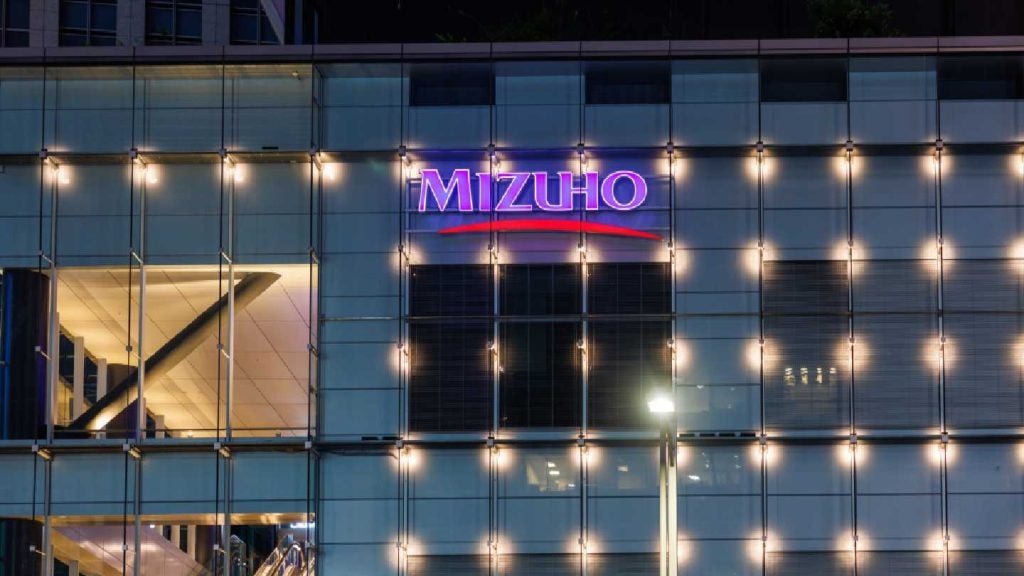
As Islamic finance continues to grow, both financial education and innovative investment products are paving the way for a new era of Sharia-compliant wealth management and private banking.
Islamic finance is emerging as a crucial area of expertise within private banking and wealth management, especially for professionals dealing with high-net-worth individuals (HNWIs) interested in Sharia-compliant investments.

Access deeper industry intelligence
Experience unmatched clarity with a single platform that combines unique data, AI, and human expertise.
The Chartered Institute for Securities & Investment (CISI) responds to this demand with its Level 3 Islamic Finance Qualification (IFQ).
CISI CEO Tracy Vegro OBE discusses the objectives, content, and broader impact of this qualification on private banking, along with the growth potential of Islamic finance.
Building a Strong Foundation in Islamic Finance
The Level 3 IFQ serves as a cornerstone for professionals aspiring to work in Islamic finance. According to Vegro, the qualification “equips candidates with a practical understanding of how Islamic finance is structured and an understanding of the influence of Sharia finance in a business context”.
The syllabus includes foundational principles of Islamic finance, key contracts, principles of exchange, asset management, Sukuk (Islamic bonds), Takaful (Islamic insurance), and governance.

US Tariffs are shifting - will you react or anticipate?
Don’t let policy changes catch you off guard. Stay proactive with real-time data and expert analysis.
By GlobalDataThis robust curriculum ensures candidates gain “a core understanding of the fundamental rules and principles” specific to Islamic finance, laying the groundwork for careers in sectors requiring specialised financial acumen.
Vegro notes that this qualification meets a practical need for skills in Islamic finance: “It assists candidates with careers in the Islamic finance and investment sectors, especially for those engaging with clients who seek Sharia-compliant financial solutions.”
Meeting the Needs of Private Bankers and Wealth Managers
The qualification has garnered particular interest among private bankers and wealth managers serving HNWIs. Vegro explains that it “provides a core understanding of the Sharia principles that govern Islamic finance,” allowing private banking professionals to engage knowledgeably with clients interested in these principles.
The curriculum not only familiarises candidates with key Islamic banking structures but also ensures they can effectively navigate Sharia-compliant products used by Islamic banks worldwide.
Vegro highlights that this is critical in today’s private banking landscape: “The qualification allows those who wish to be involved in Islamic finance to familiarise themselves with the concepts and structures that are generally used by Islamic banks and financial institutions globally.”
Adapting to Market Changes
Capital markets and wealth management strategies are continuously evolving, and the IFQ is designed to keep pace. She shares that CISI collaborates with a panel of Expert Practitioners with deep expertise in Islamic finance who regularly review course content. These practitioners ensure that the syllabus remains aligned with the latest industry practices and regulatory requirements.
“The content for all of CISI’s qualifications is reviewed regularly to update the content in line with current best practices,” Vegro states, emphasising the organisation’s commitment to relevant, high-quality education that reflects real-world applications in the field.
CISI has built an extensive network of partnerships to promote Islamic finance education across the globe. Vegro cites significant collaborations, including with Kuwait’s Capital Markets Authority (CMA), which mandates the IFQ for certain licensed positions.
Such partnerships help “raise awareness and facilitate the adoption of the IFQ across the financial sector, ensuring that professionals are well-equipped with the necessary knowledge and skills in Islamic finance,” she adds.
These collaborations reinforce CISI’s mission to extend Islamic finance education to a global audience and support financial institutions looking to build Sharia-compliant expertise.
Future Growth Opportunities in Islamic Finance
Islamic finance has shown remarkable resilience and growth potential. Vegro reflects on the sustained interest in Islamic finance, noting, “For CISI, the interest in Islamic finance has only grown over the last five years.” As more investors seek ethical and socially responsible investments, the appeal of Islamic finance—rooted in ethical principles that avoid interest and speculation—continues to rise.
Although future market trends remain uncertain, Islamic finance is well-positioned to grow within the private banking sector, presenting opportunities for professionals equipped with the relevant expertise.
Recognising the need for continuous learning, CISI offers additional resources and professional development for IFQ graduates. Vegro describes a “comprehensive 1.15-hour e-learning Professional Refresher on Islamic Banking available in English and Arabic,” along with numerous articles related to Islamic finance available on CISI’s learning platform, The Review.
Further, CISI’s platform offers content in finance and business skills, including courses on Business Resilience and Leadership in a Digital World, designed to benefit members at various career stages. Content is regularly updated, ranging from six to 18 months, to reflect the latest trends and skills needed across financial services.
With its Level 3 IFQ, CISI aims to create a new cadre of professionals who are not only well-versed in Islamic finance but also prepared to meet the unique needs of HNWIs seeking Sharia-compliant investments. As Vegro summarises: “The qualification allows private bankers and wealth managers to familiarise themselves with Islamic finance principles and participate confidently in a rapidly expanding sector.”
Islamic finance is no longer a niche offering; it is a globally recognised investment approach that aligns with ethical principles, offering sustainable growth opportunities for clients and financial professionals alike.
For private bankers, the IFQ represents both a gateway to understanding these principles and a pathway to future-proof their careers in an evolving marketplace. It is a gateway to understanding the principles, contracts, and structures that define Islamic finance today.
As Islamic finance continues to mature, professionals equipped with this expertise can play a significant role in shaping the future of private banking and wealth management, expanding access to investment solutions that align with both financial goals and ethical beliefs.
Meanwhile Ali Janoudi, head of new markets at Lombard Odier Group, explains the firm’s innovative Assayil Islamic investment solutions.
Since its inception in 2012, Lombard Odier has been committed to providing investment options aligned with Islamic finance principles, culminating in a robust offering that caters to the evolving needs of both Muslim and non-Muslim investors.
Assayil Islamic Investment Solutions
Lombard Odier’s Assayil solutions have set themselves apart in the market through a fully customisable approach.
“Since 2012, we’ve been offering our clients investment solutions in line with the principles of Islamic finance,” Janoudi explained. “In February 2018, our discretionary mandate was officially certified as ‘Shariah compliant’ by the Shariah Supervisory Board of Amanie Advisors.” This certification underscores the rigor and integrity of Lombard Odier’s offerings, which underline social responsibility.
Janoudi highlights the distinctiveness of the Assayil mandate: “Our solutions provide three risk/return profiles and consist of three separate building blocks of Shariah investment solutions, all selected through a stringent process.”
When asked about the momentum for launching Assayil, Janoudi remarks, “Our Assayil offering reflects Lombard Odier’s over 50 years of commitment to the Middle East.” This initiative is not merely a response to market demand but is rooted in the firm’s mission to align its services with client values. “Islamic finance is a vital conduit for promoting socially responsible investments,” he adds, highlighting the integration of ethical investment practices into the firm’s core philosophy.
The integrity of Lombard Odier’s Assayil solutions is ensured through a disciplined screening process. Janoudi states, “Our selection process adheres strictly to the fundamental requirements of Islamic finance, which prohibit usury (Riba), excessive uncertainty (Gharar), and speculative investments (Maysir).”
The firm also avoids sectors considered illicit and emphasises profit and loss sharing, thus crafting portfolios that are both compliant and ethically sound.
To ensure ongoing compliance, Lombard Odier collaborates with Amanie Advisors, leveraging their esteemed Shariah Scholars to guide and certify its investment strategies.
Balancing Profit Generation with Compliance
Navigating the complex landscape of profit generation while adhering to Shariah principles is a challenge Lombard Odier meets with a comprehensive strategy. “Our Shariah mandate is holistic, providing clients access to a global wealth management experience tailored to their needs,” Janoudi notes.
The investment universe includes a diverse range of options—from Shariah-compliant equities and sukuks to high-quality external funds and structured products.
The Assayil offering has attracted attention from various sectors, with growing interest from institutional investors, family offices, and private clients. Janoudi observes, “We are witnessing increasing demand not only from Shariah investors but also from clients in Europe and Asia seeking ethical investment opportunities.”
In light of the rising demand for ethical and Sharia-compliant investment products, Lombard Odier has expanded its offerings. The launch of the Lombard Odier Assayil Global Strategy Certificate in October 2022 exemplifies this effort.
Furthermore, a collaboration with SEDCO Capital resulted in the first Sustainable Equity Investment Fund that meets Shariah compliance and European UCITS standards.
Differentiation in a Competitive Market
Janoudi points out that Assayil’s certification is unique: “It’s linked to the entire investment process, not just a single mandate.” This flexibility allows clients to customise their portfolios in ways that many competitors do not offer, ensuring that their investment strategies align closely with personal values and goals.
Finally, Janoudi shared insights on the global trends shaping the Islamic finance sector. “With our presence across 28 offices in 19 jurisdictions, we’ve observed a notable increase in demand for Shariah-compliant investments, particularly from European and Asian markets.”
He attributes this growing appetite to a wider recognition of ethical investing principles, reflecting a broader shift in investor priorities.
Lombard Odier’s Assayil Islamic investment solutions represent a significant advancement in the realm of ethical finance, providing investors with tailored, Shariah-compliant options that align with their values and objectives. As the global landscape for Islamic finance continues to evolve, Lombard Odier stands poised to meet the diverse needs of an expanding client base.







